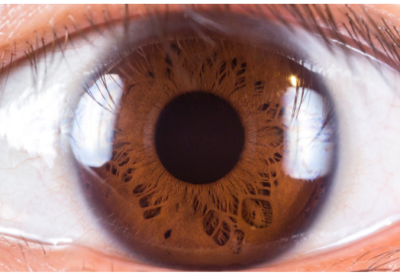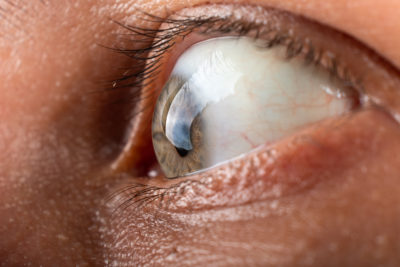Everyone has experienced blurry vision at some point, whether due to tiredness or the occasional need for glasses.
However, if blurry vision occurs frequently or regularly, consider it a warning sign of a more serious underlying issue. Consider this blog a guide to understanding what causes blurry vision, how to fix blurry vision naturally, and the common causes and symptoms of blurry vision.
What Is Blurry Vision?
Blurry vision is a distortion or reduction in the sharpness of your vision. If you are experiencing blurry vision, you may find yourself blinking, squinting or rubbing your eyes to get a clear view.
Blurry vision in one or both eyes can be a result of ageing or the need for new glasses. It is also important to note that sudden blurry vision can also be a sign of other health problems.
Types of Blurry Vision
Blurry vision typically develops gradually. However, certain conditions can cause sudden blurry vision in one eye or both.
The most common types of blurry vision are sudden blurry vision in both eyes and blurry vision in one eye. Let’s take a detailed look at them.
Sudden Blurry Vision in Both Eyes
Blurry vision is not always a cause for concern, but sudden blurry vision in both eyes can be a serious symptom that requires immediate medical attention. Sudden blurry vision in both eyes could be an indication of stroke or other life-threatening conditions.
The most common causes of sudden blurry vision in both eyes are stroke or TIA (Transient Ischemic Attack), retinal detachment (can be treated with retinal detachment surgery) or medical side effects.
Blurry Vision in One Eye
Blurry vision in one eye can indicate a range of causes. These causes range from refractive errors to more serious conditions like stroke, dry eye syndrome, macular degeneration and glaucoma.
It’s crucial to seek immediate medical attention if the blurry vision persists or worsens.
What are the Common Causes of Blurred Vision?
Blurry vision is a very common symptom with many potential causes, including refractive errors, eye strain, dizziness and retinal detachment.
Refractive Errors
Refractive error is a disorder that occurs when the eyes cannot focus on objects clearly, as the eye’s shape keeps light from focusing directly onto the retina.
Refractive error is considered to be one of the leading causes of blurry vision. Some of the most common refractive errors include: myopia, hyperopia, astigmatism and presbyopia.
Eye Strain and Blurred Vision
Eye strain due to overworking or tiredness is one of the leading causes of blurry vision.
Extensive use of screens without adjusting the focus and allowing the eyes to rest can cause eye muscle fatigue. Taking frequent breaks and resting the eyes with cooling pads can help prevent and alleviate eye strain.
Dizziness and Blurred Vision
Dizziness followed by blurred vision can be more severe. This could mean your balance and vision are at risk. Vestibular disorders, low blood pressure or neurological disorders often cause such symptoms.
Retina Problems Like Diabetic Retinopathy
Diabetic Retinopathy is a serious eye condition that affects people with diabetes. This typically occurs when high levels of glucose or sugar in the blood lead to changes in the network of blood vessels within the retina.
Diabetic Retinopathy can affect people with Type 1 or Type 2 diabetes. Diabetic retinopathy treatment includes laser photocoagulation, anti-VEGF injections, vitrectomy, and diabetes management.
Symptoms of Blurred Vision
There are various symptoms of blurred vision, the most common being due to ageing or tiredness. However, in some cases, blurred vision can be accompanied by headaches, nausea, or eye pain.
Blurred Vision with Headache
Blurred vision and headaches can be caused by several factors such as eye strain, migraines, glaucoma or even stroke. If you experience sudden blurry vision in one or both eyes along with a headache, seek medical help immediately.
Blurred Vision with Nausea
Possible causes of blurred vision accompanied by nausea include migraine, stroke, diabetic ketoacidosis, low blood sugar, eye conditions such as glaucoma or even carbon monoxide poisoning.
Eye Pain and Blurred Vision
A variety of factors can cause eye pain and blurry vision in one or both eyes. These factors include relatively common conditions, such as eye strain, and more serious issues, such as uveitis or glaucoma.









